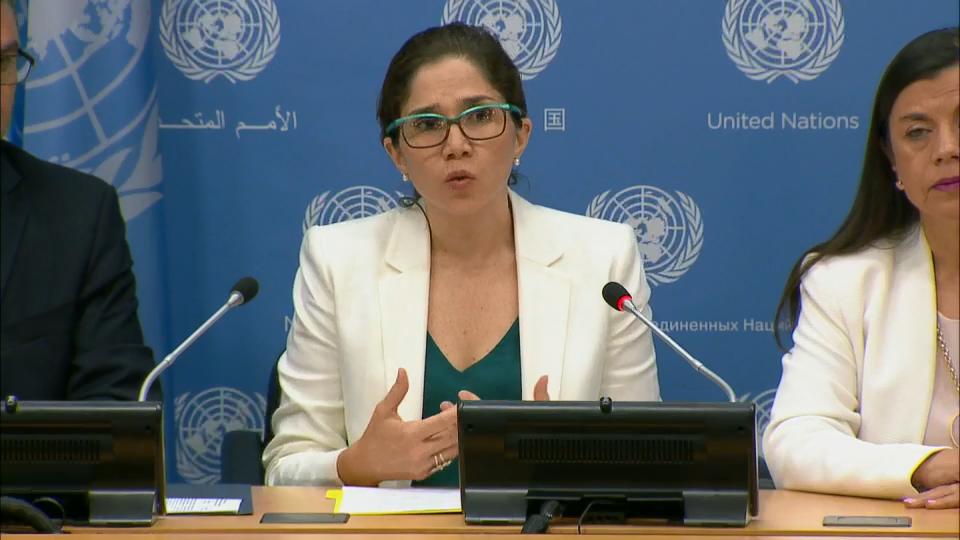End of Mission Statement by the United Nations Special Rapporteur on the rights of persons with disabilities, Ms. Catalina Devandas-Aguilar, on her visit to Canada
In April, 2019 the UN Special Rapporteur on the rights of persons with disabilities presented her end of mission statement after visiting Canada. Her full statement can be found at https://www.ohchr.org/EN/NewsEvents/Pages/DisplayNews.aspx?NewsID=24481&LangID=E .

At the conclusion of her mission to Canada, the UN’s expert on disability rights expresses ‘extreme concern’ concerning the failure of Canadian governments (incl. Nova Scotia) to ensure adequate community-based supports for persons with disabilities. She was also critical of the idea of making individual families file their own human rights complaint.
We have selected some important passages to amplify:
“Nevertheless, during my visit I have noticed that discussions about the rights of persons with disabilities are still framed in terms of social assistance, rather than from a human rights-based approach. While the Canadian Charter of Rights and Freedoms enshrines the right to non-discrimination, and federal, provincial and territorial human rights laws recognise a duty to accommodate, which allows for individual remedies, this is insufficient to ensure a systemic transformation of society.
“I would like to remind the authorities that the CRPD embraces a substantive model of equality, which goes beyond non-discriminatory approaches towards the full inclusion and participation of persons with disabilities. Therefore, more proactive governmental responses are needed to ensure systemic change and take away from individuals the burden of initiating lengthy and onerous legal procedures to achieve the recognition and enjoyment of their rights.
[…]
“I am extremely concerned about the lack of comprehensive responses to guarantee the access of persons with disabilities to the support they need to live independently in their communities. Whereas legislation, services and programmes vary across provinces and territories, generally access to support is not considered as a right, but rather as a social assistance programme dependent on the availability of services.
“Moreover, many support services and programmes are run by non-profit organizations, with limited funding and guidance from the provincial and territorial governments. Consequently, persons with disabilities have limited access to different forms of support (including income support, home support, and respite centers), experiencing long waiting time up to several years. While some pilot projects have shown their potential to transform service provision (e.g., the initiatives to provide personalized direct funding), the overall identification, systematization and scaling-up of such initiatives remain a challenge.
“According to Statistics Canada, around 509,000 persons with a health-related condition reside in hospitals, nursing homes, group homes and other long-term facilities. While the majority of larger disability-specific institutions have been closed, the absence of community-based options gives no other alternatives to persons with disabilities than living in institutions and other residential settings where they end up being segregated and isolated from their communities, thus denying their choice of and control over living and support arrangements, and significantly restricting their day-to-day decisions.
“Furthermore, I have been informed that persons with disabilities, particularly those with intellectual and psychosocial disabilities, are significantly overrepresented among the homeless population. This rate keeps increasing due to poverty and the lack of community-based services, including adequate and supported housing.
“In this regard, I urge the federal, provincial and territorial governments to adopt concrete action plans to prevent the re-institutionalization of persons with disabilities and to ensure the provision of community-based services, including adequate housing. The provision of support to persons with disabilities is not only a human rights obligation of Canada, but also an essential condition to ensure that no one is left behind in the implementation of the 2030 Agenda for Sustainable Development.”
